Black History Month is a time reserved annually to celebrate the rich tapestry of global cultures, milestones, histories, and contributions made by Black people. While the month of February typically recognizes African Americans’ specific triumphs and breakthroughs in US history, many stories of Black history have roots in nations that precede many pivotal moments in the history of the United States. And many countries around the world are home to destinations and sites that echo the resilience, creativity, and enduring legacy of the African diaspora.
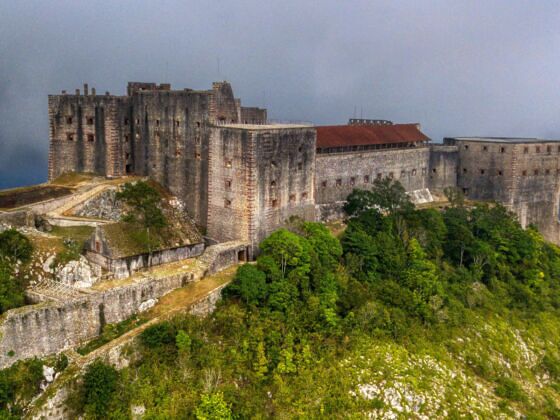

8 Fascinating Black History Sites Around the World
From vibrant villages near Cartagena to historic sites in West Africa and the Caribbean, many places worldwide have preserved structures in places that encapsulate the essence of Black heritage and stories.
The eight locations below are meaningful stops in popular tourist countries, all offering insight into the socio-political aspects of Black history. A visit to any of the sites below is not just interesting, but also a way to connect with and learn more about Black history well beyond the borders of the United States.
Here are eight Black history sites around the world that celebrate the struggles, achievements, and culture of Black citizens.
Elmina Castle in Elmina, Ghana
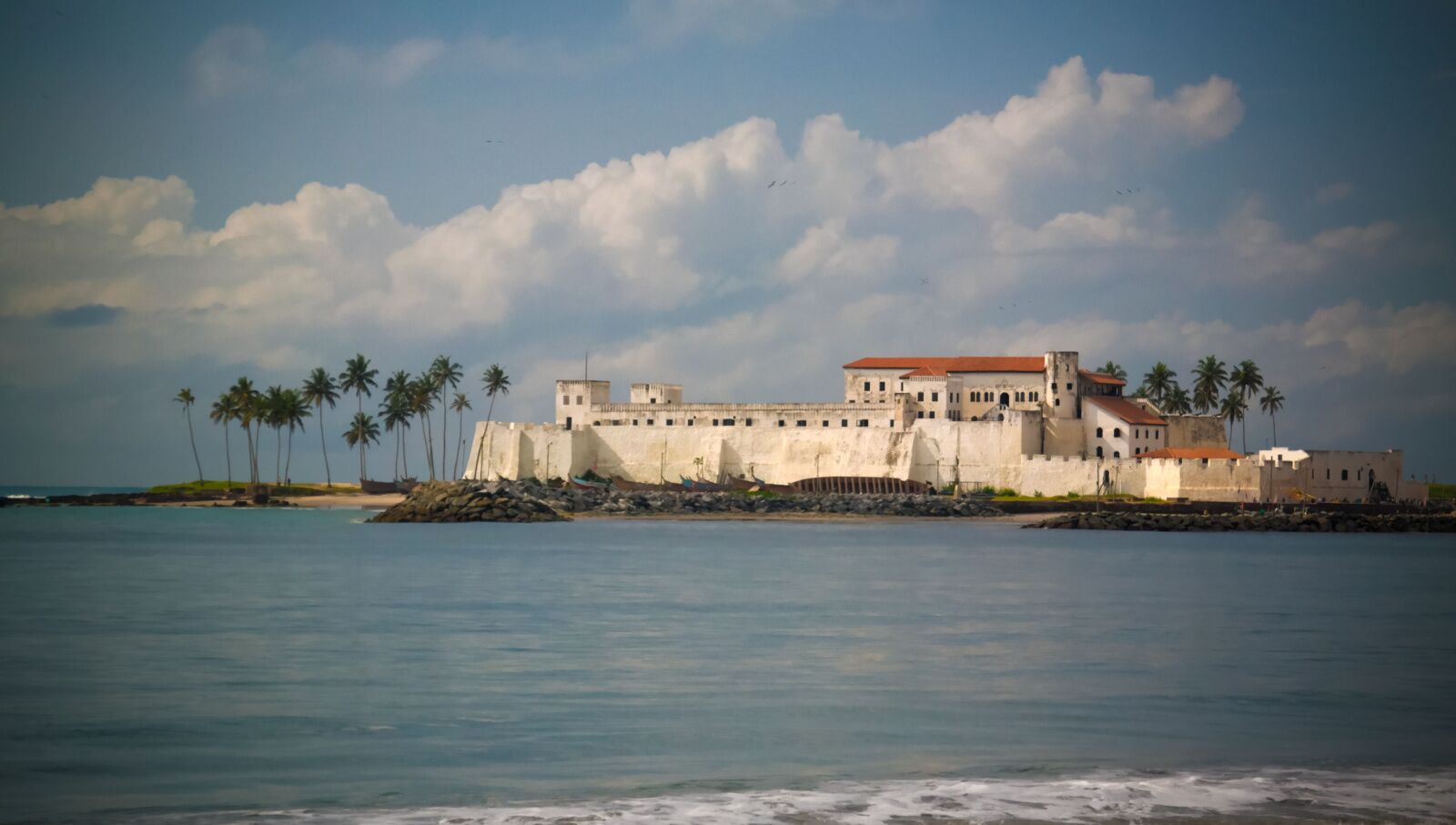
Elina Castle sits about three hours south of Accra. Photo: Homo Cosmicos/Shutterstock
Located in the coastal town of Elmina in Ghana, Elmina Castle is a historic site that holds the tragic stories of the transatlantic slave trade and European colonialism in Ghana.
Constructed by the Portuguese in 1482, the castle was initially designed as a trading post for commodities like gold. Later, colonizers came to see indigenous Ghanians as commodities, and held captured slaves at Elmina Castle. There, they were tortured and sold, explaining why the site is also called a dungeon.
The castle is now recognized by UNESCO as a World Heritage Site and attracts visitors from all over the world. On tours, visitors can learn about the history of the slave trade in Ghana, entering the rooms where enslaved people were once held. It’s a somber site, but also plays a role of utmost importance in explaining why structures like Elmina Castle must continue to be preserved.
- Address: 3MM2+4R3, Elmina, Ghana
- Hours: 9 AM-4:30 PM daily
- Costs: 50 GHS (about $4)
Apartheid Museum in Johannesburg, South Africa
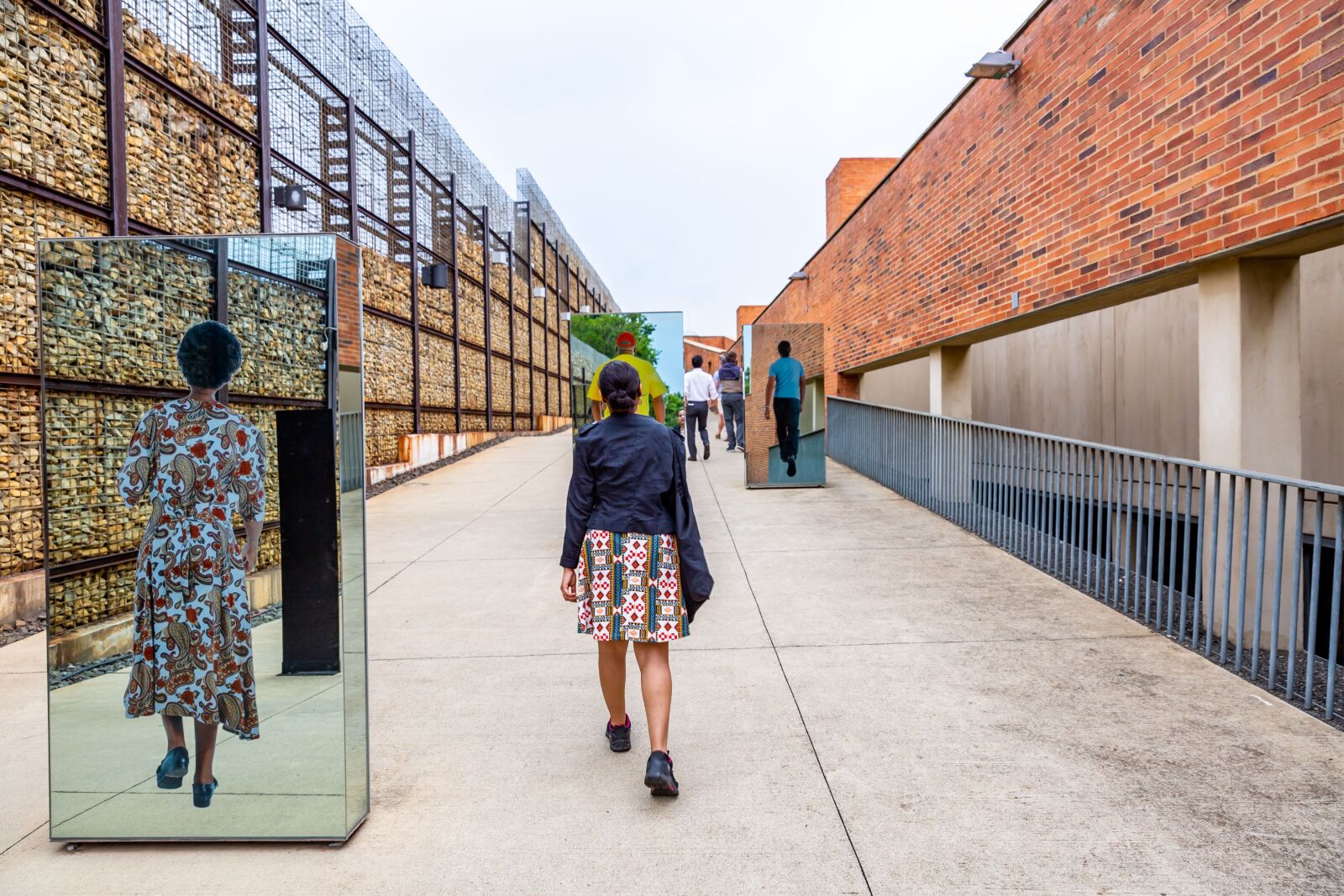
A woman at the Apartheid Museum’s entrance. Photo: Finn stock/Shutterstock
The Apartheid Museum in Johannesburg stands as a powerful testament to South Africa’s past and the struggle against institutionalized racial segregation. It was a period in the country’s history when racism was legal and the minority white population did all it could to keep Black citizens disenfranchised and without any kind of equal rights.
Apartheid in South Africa lasted from 1948 to the early 1990s, and the museum takes visitors on a journey through the period with compelling exhibits that chronicle the system’s origins, impact on individuals and communities, and formal dismantling.
The Apartheid Museum uses examples such as its race classification entry system that classifies visitors as white or non-white to immerse them into the realities of life under the system. The legacy of the anti-apartheid struggle remains a powerful reminder of what Black individuals have overcome in the face of systemic injustice, and why continuing to fight for equality will always matter.
The museum is also only 15 minutes from the home of former South African President Nelson Mandela in the neighborhood of Soweto. It’s one of the most important Black history sites in Africa, and maybe the world, as Mandela was the country’s most famous freedom fighter and political prisoner.
- Address: Northern Parkway and Gold Reef Road, Johannesburg, 2001, South Africa
- Hours: 9 AM-5 PM, Wednesday-Sunday. Closed Monday and Tuesday
- Costs: R100-150 (about $5.50-$8)
The Black Cultural Archives in London, UK
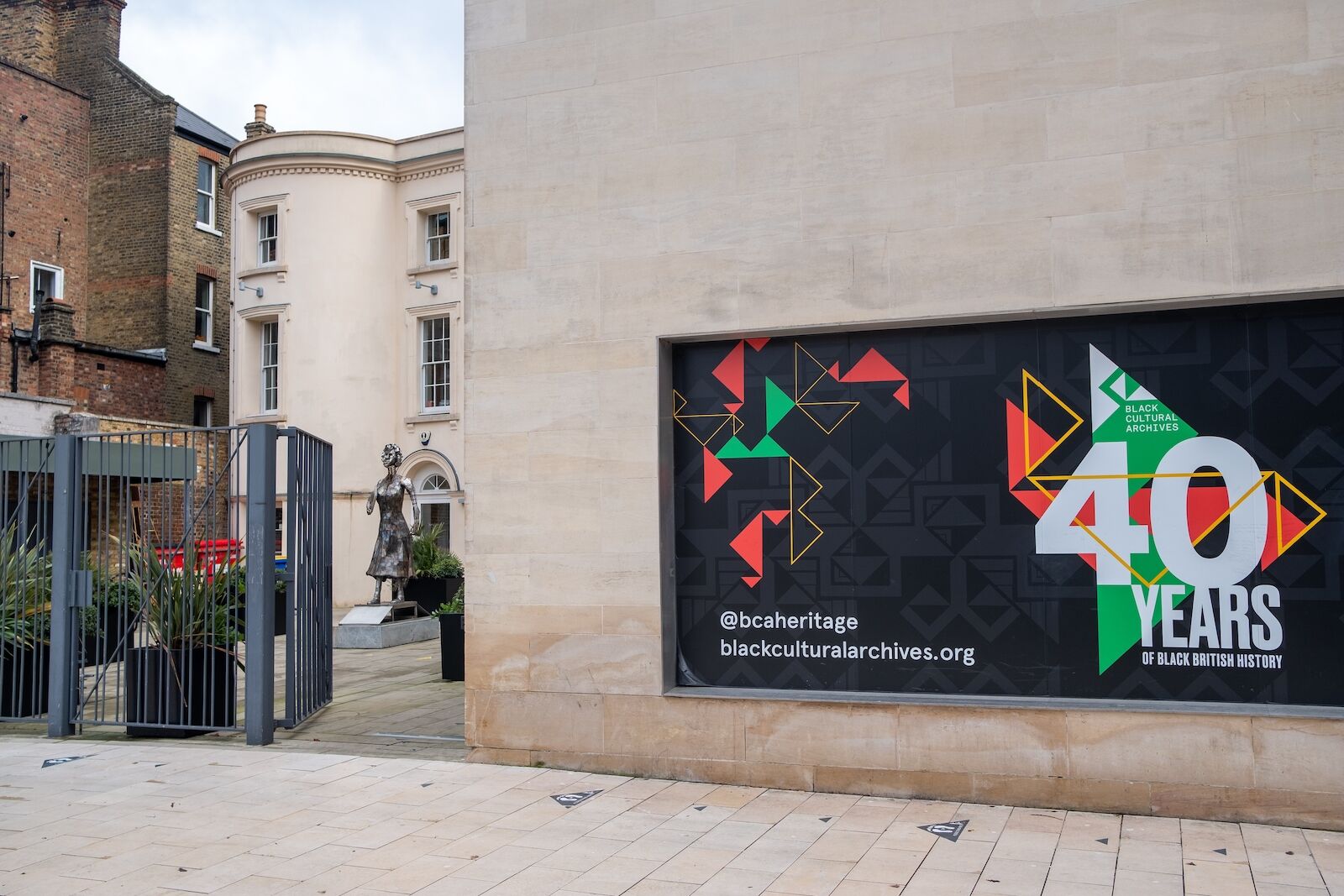
The facade of London’s large Black Cultural Archives. Photo: William Barton/Shutterstock
Nicknamed the “Home of Black British History,” the Black Cultural Archives (BCA) in London is an institution devoted to collecting, preserving, and commemorating the histories of individuals of African and Caribbean descent in the UK.
The Black Cultural Archives was formed as a result of a series of unfortunate and unjust events toward Black people in the UK, including the New Cross Massacre in 1981 in which 13 Black people were murdered by a far-right group. The BCA has exhibitions, events, and educational programs, and supports the preservation of other Black historical sites around London.
- Address: Northern Parkway and Gold Reef Road, Johannesburg, 2001, South Africa
- Hours: 9 AM-5 PM, Wednesday-Sunday. Closed Monday and Tuesday.
- Costs: R100-150 (about $5.50-$8)
Citadelle Laferrière in Cap Haitian, Haiti
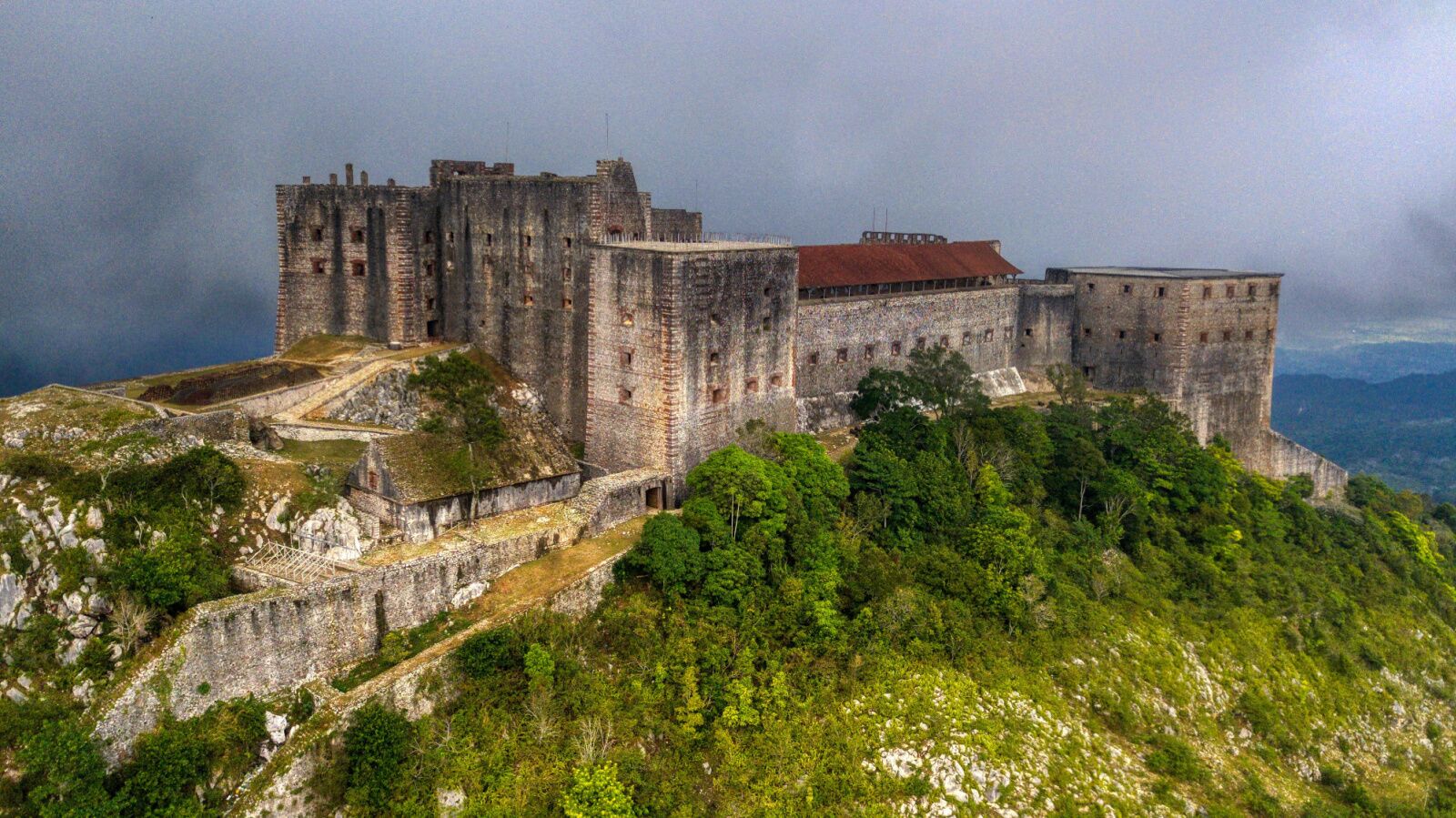
Guests can ride horses or hike to thee hilltop fortress. Photo: Rotorhead 30A Productions/Shutterstock
Haiti’s achievement of independence in 1804 was a monumental and empowering moment in Black history. As the first Black republic and nation to have a successful slave revolt, Haiti has undeniably played a critical role in history. Its success in 1804 inspired several other nations to work toward independence and human rights globally. And Citadelle Laferrière in Cap-Haitian is a site that represents Haiti’s struggle for freedom. Built after the revolution, the mountaintop fortress was constructed to defend Haiti’s newfound free citizens from possible French invasion.
Today, at the bottom of the mountain, dozens of horses await to take tourists to the fort’s entrance. It’s the starting point for tours of the structure, looking at both the construction and architecture as well as the history of the revolution that inspired several independence movements to come.
- Address: HQF4+4H3, Vaseux, Haiti
- Hours: 8 AM-4 PM daily
- Costs: Horseback rides are about $15, admission is $5
San Basilio de Palenque in Colombia
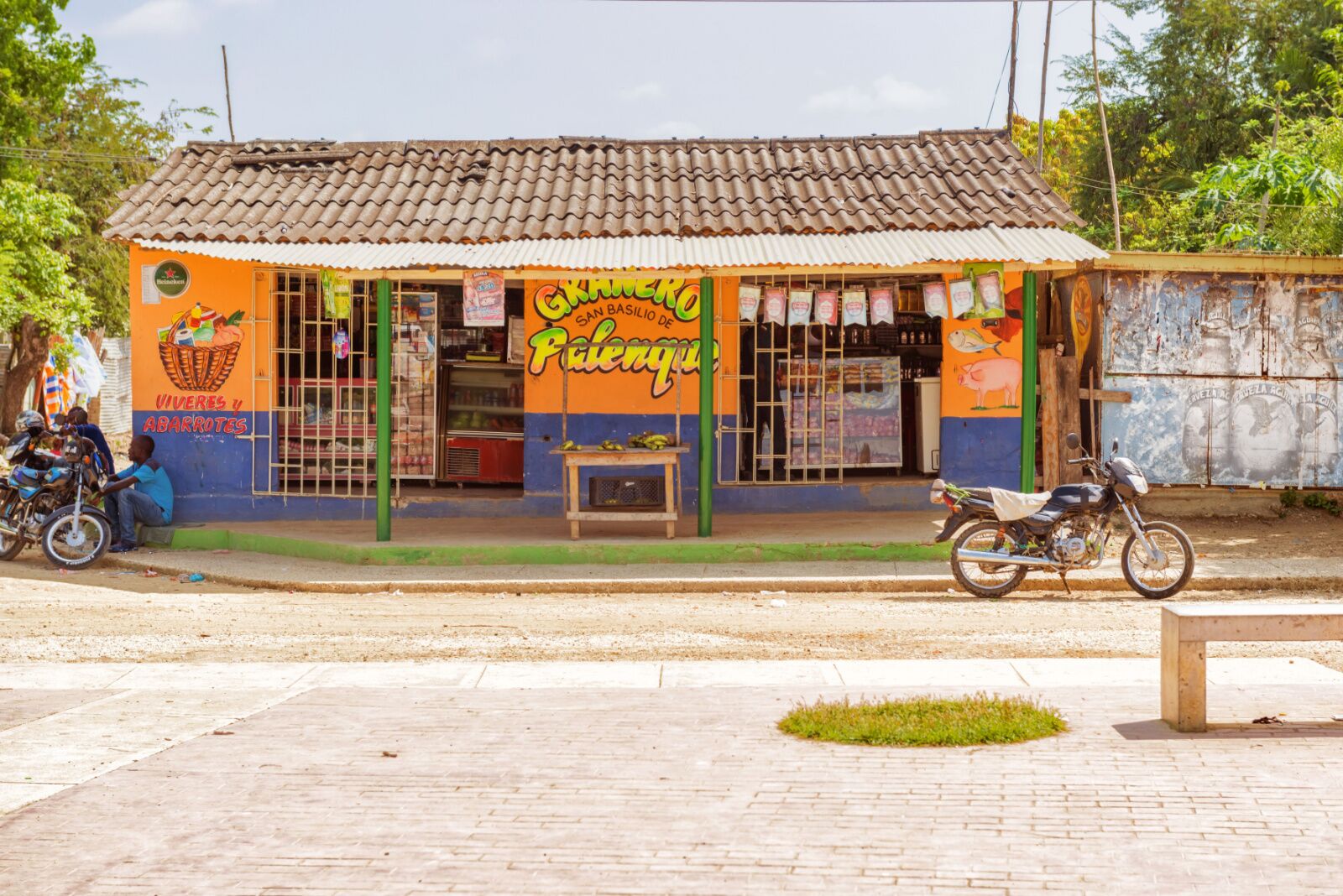
Walking tours through the town are a popular activity for visitors to Cartagena, Columbia. Photo: Marek Poplawski/Shutterstock
San Basilio de Palenque, commonly referred to as “Palenque,” is the first free town in the Americas. It was founded in the 17th century as a refuge by escaped slaves.
Residents of the town have preserved many of their historical ties to Africa through social, medical, cultural, and religious practices. And visitors who make the trip can learn about the history firsthand from the inhabitants themselves.
The village is known for its vibrant music, dance, and creole language, making it a living cultural treasure with deep roots in the African diaspora. The best way to visit the town is on a day tour from Cartagena, about an hour away. On tour booking sites like Viator, you’ll find guided trips like this freedom tour or this historical tour, most of which include a visit to the town’s museum and chances to watch local dancers and meet musicians playing traditional songs.
Palenque is a beautiful example of a town that maintains its unique Afro-Colombian culture, blending African traditions with Colombian influences.
- Address: Palenque, Colombia
- Hours: N/A
- Costs: Free to visit, tours start around $110 per person
Afro Brazil Museum in São Paulo, Brazil
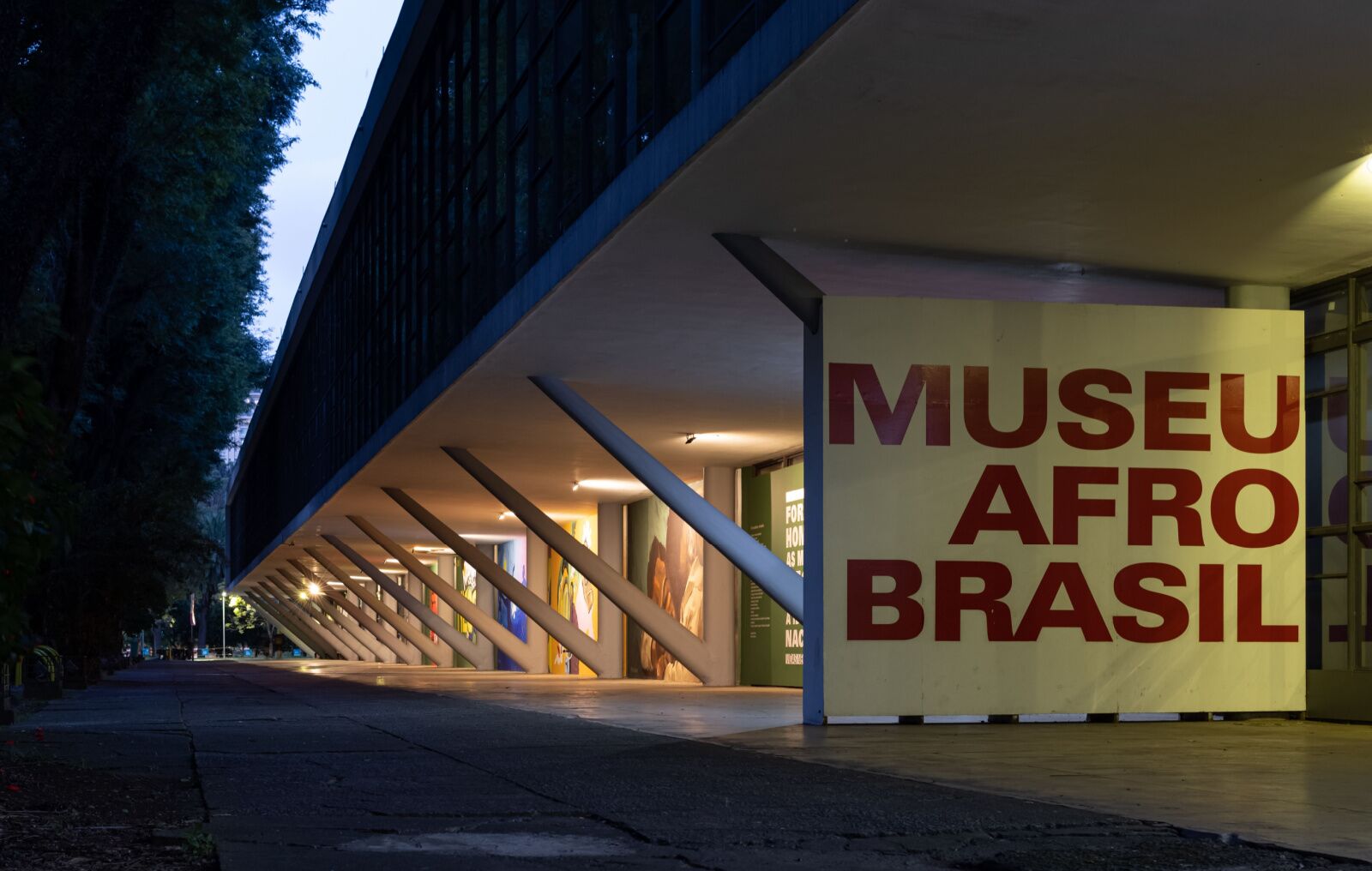
The museum is the worth at least a half-day visit. Photo: lucianospagnolribeiro/Shutterstock
Brazil’s Afro culture is strong and vibrant, proving the enduring legacy of the country’s many Black citizens. Afro culture is a huge part of the country’s cultural mosaic – a mosaic visitors can further explore at the Afro Brazil Museum in São Paulo.
The museum contains more than 6,000 pieces of art ranging from paintings to ethnological pieces by Brazilian and other creators worldwide from countries like Cuba and Haiti. Its six sections include “Africa: Diversity and Permanence,” focused on the many cultures of Africa; “Work and Slavery;” “Afro-Brazilian Religions,” about the many spiritual belief systems in the country rooted in Africa; “The Sacred and the Profane,” teaching about Brazilian festivals; “History and Memory,” about Black contributions to history and society; and “Visual Arts: the Afro-Brazilian Hand,” all about Brazilian art and creativity.
- Address: Portão 10, Av. Pedro Álvares Cabral, s/n – Vila Mariana, São Paulo – Estado de São Paulo, 04094-050, Brazil
- Hours: 10 AM-5 PM, closed Mondays
- Costs: R$15,00 (about $3.30)
The ‘Door of No Return’ in Ouidah, Benin
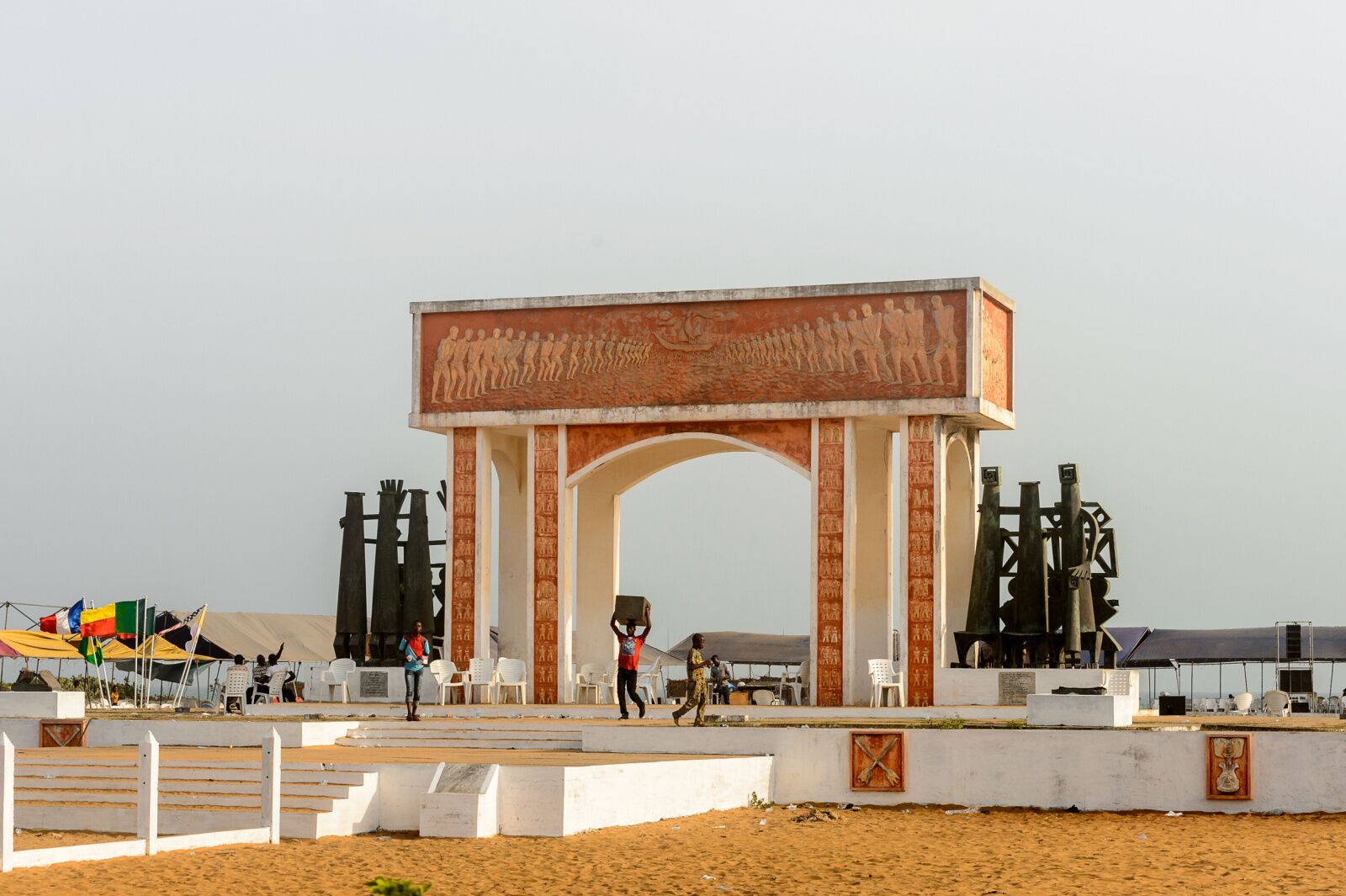
One of a few “door of no return” monuments is just south of Ouidah, Benin. Photo: Anton_Ivanov/Shutterstock
The term “Door of No Return” is typically associated with one of several locations along the West African coastline used as departure points for enslaved Africans during the transatlantic slave trade. These symbolic doors, usually in forts or slave dungeons, represented the final passage away from home as enslaved individuals were forced onto ships, unlikely to ever return.
The Door of No Return in Benin is a colorful archway monument on the coast of Ouidah. The arch depicts chained enslaved people as they walk to the sea to board ships to carry them away from Africa. It’s thought that Europeans forced nearly 1.6 million people into slavery from the Bay of Benin, in the modern-day countries of Benin, Togo, Ghana, and Nigeria
The site stands as one of many reminders of the transatlantic slave trade. It’s been known to elicit an emotional response from visitors as they stand in the same space where enslaved people once began their forced journeys abroad. It’s only about a 10-15 minute taxi ride from the town of Ouidah, near the town’s popular beaches.
- Address: On the beach, roughly three miles south of Ouidah
- Hours: N/A
- Costs: Free
Museum of Black Civilizations in Dakar, Senegal
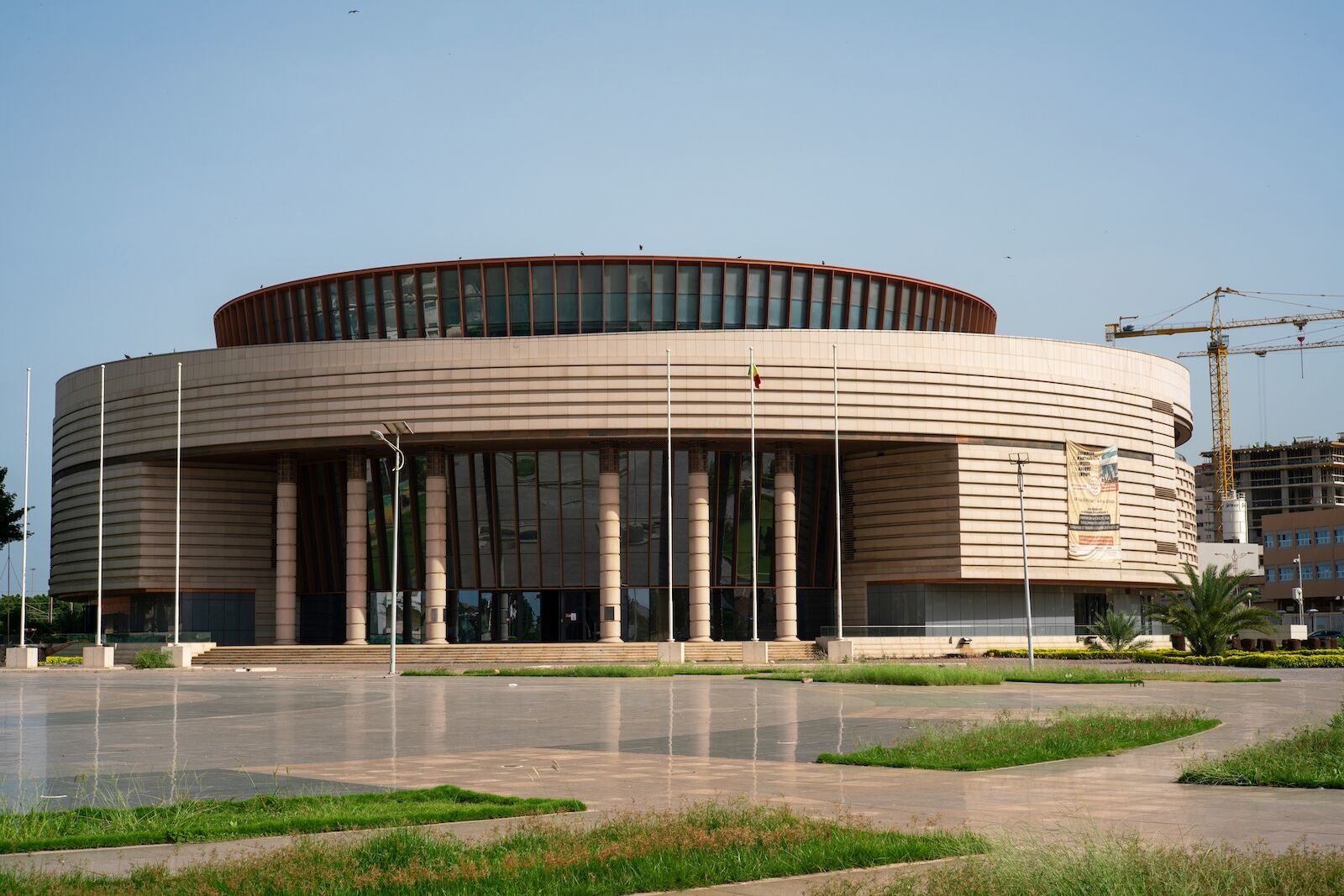
The Museum of Black Civilizations in the largest in Senegal. Photo: Pierre Laborde/Shutterstock
Senegal’s Museum of Black Civilizations opened in 2018 and was designed to both showcase the history of the continent’s various heritages, and unite people to celebrate Blackness. The museum has collections of artifacts, artwork, and historical exhibits highlighting Black civilizations across Africa and the greater global diaspora. Interestingly, the museum is quite large – the largest in the country, actually – but has plenty of empty space. That’s because Senegalese (and other African) groups are leading promising efforts to have stolen artwork and historical pieces returned to the continent. Much of the work now in countries like France and the UK was stolen from African countries during their periods of European colonization.
The museum serves as a crucial platform in Senegal for understanding Black cultures and reshaping narratives about Africa, and is fascinating for both art fans and history buffs.
- Address: The Museum of Black Civilizations, Dakar, Senegal
- Hours: 10 AM-7 PM. Closed Mondays.
- Costs: $3